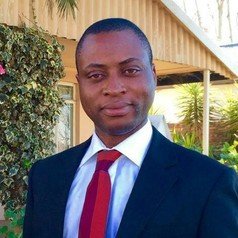The University of Nigeria, commonly referred to as UNN, is a federal university located in Nsukka, Enugu State, Eastern part of Nigeria. Founded by Nnamdi Azikiwe in 1955 and formally opened on 7 October 1960, the University of Nigeria has three campuses in Enugu State– Nsukka, Enugu, and Ituku-Ozalla.
The University of Nigeria is the first full-fledged indigenous and first autonomous university in Nigeria, modelled upon the American educational system. It was the first land-grant university in Africa and one of the five most reputed universities in Nigeria. The university has 17 Faculties and 102 academic departments. The university offers 108 undergraduate programs and 211 postgraduate programmes.
The university celebrated its 50th anniversary in October 2010, and would have celebrated its 60th anniversary in October, 2020 save for the COVID-19 pandemic.
A law to establish a university in the Eastern Region of Nigeria was passed on 18 May, 1955. This date marks the formal beginning of the history of the University of Nigeria, with the enactment of a legislation by several Nigerian leaders, inspired particularly by the then Premier of the Eastern Region, Dr. Nnamdi Azikiwe.
One of the first steps taken by the Eastern Nigeria Government towards the implementation of its commitment was an invitation to both the United States of America and the United Kingdom to send advisers to help in the planning of physical and educational aspects of the proposed university.
Under the joint auspices of the Inter-University Council for Higher Education and Overseas and the International Co-operation Administration (now the United States Agency for International Development), J.W. Cook, Vice-Chancellor of the University of Exeter, Dr. John A. Hannah, President of Michigan State University and Dr. Glen L. Taggart, Dean of International Programs at the same university, came to Nigeria in 1958. The team surveyed the site at Nsukka, and extensively investigated a great variety of factors pertinent to the establishment of a new university.
The results of their efforts were contained in a white paper issued by the Eastern Nigeria Government on 30 November, 1958. They had recommended “that the development of the University of Nigeria based upon the concept of service to problems and needs of Nigeria, is a desirable project and one that should receive support from any source which could help to make it a sound endeavor”.
They further recommended that a provisional council be established to “draw upon the technical and consultative resources available throughout the world for help in planning the institution”.
The provisional council, authorized by the Eastern Nigeria Legislature, was appointed by the Governor in Council in April 1959, and given necessary financial and administrative powers to build a sound university. It reflected the spirit of international co-operation which has given birth to the institution. It consisted of Dr. Nnamdi Azikiwe, chairman, Dr. T. Olawale Elias and Dr. Okechukwu Ikejiani from the Federation of Nigeria, J.S. Fulton from the United Kingdom, Dr. Marguerite Cartwright and Dr. Eldon Lee Johnson from the United States of America.
The university was formally opened on 7 October, 1960, as the climax to the Nigerian independence celebrations in the Eastern Region. Her Royal Highness, Princess Alexandra of Kent, representing Her Majesty Queen Elizabeth II at the Nigerian independence celebrations, performed the opening ceremonies and laid the foundation stone of one of the university’s early buildings.
Classes began on 17 October, 1960 with an enrollment of 220 students and 13 members of the academic staff. The opening convocation addresses were delivered by the Chairman of the Provisional Council, Dr Nnamdi Azikiwe, the first President of the Federation of Nigeria, and by Dr John A. Hannah, President of Michigan State University, USA.
The university was fully autonomous, with the power to grant its own degrees. Technically speaking, therefore, it became the first fully-fledged university in Nigeria, since Ibadan was still at that time a university college granting London degrees. It also became the first university established by a Nigerian Regional Government. The University College Ibadan, the oldest degree awarding institution, cut its umbilical cord with London in January 1963, becoming the University of Ibadan. In July 1967, it turned out the first graduates holding Ibadan (rather than London) degrees, by which time Nsukka had produced two crops of graduates and taken all the publicity for turning out the first graduates of an autonomous Nigerian university.
Ngozi Louis Uzomah
Ngozi Louis Uzomah holds a PhD in Population Geography from the University of Nigeria Nsukka. His PhD thesis is on return migration of Cameroonian refugees in Nigeria. He has a keen interest in cross-border activities in West Africa and the Sahel region. A founder of a Nigerian based research firm, Global Investigators of Migration, Borders, Security, Development, and Beyond (GIMBOS PLUS) where he serves as the lead consultant. He has researched on refugees in Nigeria and published on migration in the ECOWAS region; EU border externalization and migration control in Africa; and African Continental Free Trade Agreement. Ngozi’s areas of research connects between migration and security. A consultant for Global Initiative Transnational Organized Crime on the mapping of conflict hotspots in Nigeria and Cameroon and on the connection between illicit weapons, organized crime and conflict in South East Nigeria. He has also consulted for University of West Bohemia on migration and terrorism in Nigeria; smuggling and trafficking through Niger/Nigeria border; the activities of Boko Haram and ISWAP insurgents in the Lake Chad borderlands; and irregular migration from Nigeria through Niger Republic to countries in North Africa.
He has membership with several networks and academic bodies including International Association for the Study of Forced Migration (IASFM); Association for Borderlands Studies (ABS); Population Association of America (PAA);Association for the Promotion of African Studies (APAS); Association of Nigerian Geographers (ANG); and he is in the editorial team of West Africa Working Group of migration-control.info
IGNATIUS ANI MADU
Ignatius Ani Madu is a Professor of Geography, University of Nigeria Nsukka with core competences in Population and Development, Climate Change Impacts and Environmental sustainability. He leads the Population, Environment and Development Research Group of the University. He has taught population, environment and development over the years and has published extensively in both local and international journals. Prof Madu has received research grants from several organizations including ;The U.S. Army Research Laboratory and the U.S. Army Research Office through The Robert S. Strauss Center for International Security and Law at The University of Texas at Austin USA through its Climate Change and African Political Stability (CCAPS) programme; African Technology Policy Studies Network, Kenya;
Council for the Development of Social Science Research in Africa(CODESRIA), Senegal, and Tertiary Education Trust Fund, Nigeria. He has been actively involved in the Federal Ministry of Environment technical panel review of development projects in various locations in Nigeria as well other areas of community service. He is an alumnus of Galilee International Management Institute, Israel.
Chukwuedozie K. Ajaero
He holds a PhD in Population Geography, which was funded with a grant from the International Foundation for Science (IFS) Stockholm, Sweden after which he carried out a postdoctoral research fellowship at the Demography and Population Studies Programme of the University of the Witwatersrand, South Africa. He is a Professor of Demography and Population Studies, and the Deputy Provost, College of Postgraduate Studies, University of Nigeria Nsukka (UNN). An Associate Researcher with the Demography and Population Studies Programme of the University of the Witwatersrand, Prof Ajaero is also a Senior Research Fellow at Resource and Environmental Policy Research Centre (REPRC) EfD Initiative Nigeria, a member of the Technical Working Group (TWG) of the Nigerian Migration Governance Team, and a Training, Monitoring and Evaluation Consultant for the 2023 Population and Housing Census of the National Population Commission of Nigeria. His areas of research straddles the linkages between migration and remittances, livelihoods, public health and climate change. He has been a socioeconomic impact assessment consultant for developmental projects in Nigeria and a training, research, and project implementation consultant for UNICEF, UNESCO, UNDP, IOM, and the FORD Foundation. Some of the researches he is working on include the European Union funded grant on GAPs: De-centering the Study of Migrant Returns and Readmission Policies in Europe and Beyond, the DFID-Funded grant on CHoRUS –Community-led Responsive and Effective Urban Health Systems, and the Environment for Development (EfD) Initiative Sweden Grant for the Project Gender analysis of vulnerability to flood risk in farming and fishing communities of Kogi State, Nigeria. Prof. Ajaero is a recipient of the ERAMUS Mobility fellowship in 2023 and has been awarded the Alexander von Humboldt Fellowship in Germany from 2023 to 2025. He is also a member of several professional bodies including Association of Nigerian Geographers (ANG) Population Association of Nigeria (PAN), PAA, IUSSP and PERN








On February 4th, the new bill of the Ministry of Migration and Asylum, titled “Promotion of Legal Migration Policies,” reached the plenary session of the Greek Parliament. Among its provisions are measures introducing increased prison sentences and higher financial penalties for the offenses of “facilitating” the irregular entry or unlawful stay of migrants in the country, when those convicted are members of non-governmental organizations (NGOs) or act jointly with others. In addition, the bill provides for the possibility of removing an NGO from the ministry’s registry (which grants access to public funding and to facilities under its responsibility) solely on the basis that one of its members is charged with any of the above offenses—meaning that no conviction is required for the organization’s deletion.